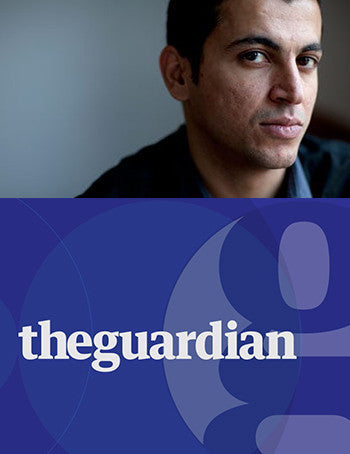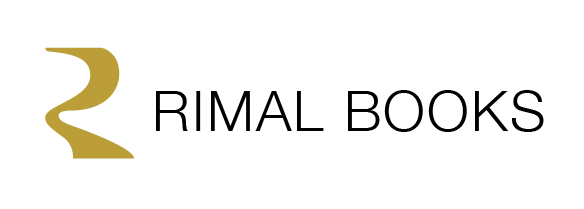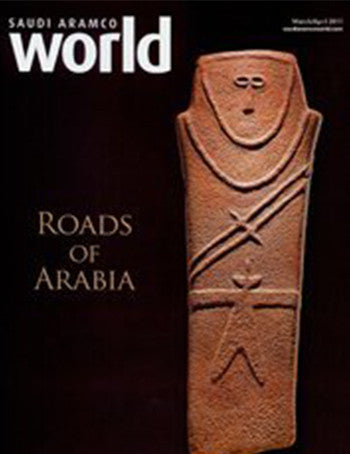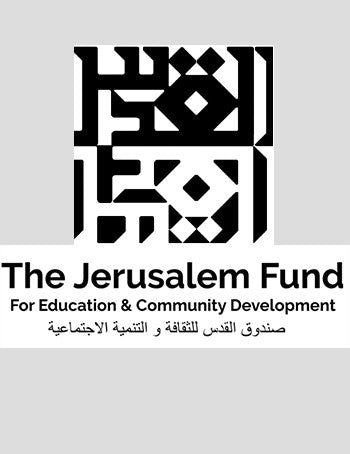
THE GUARDIAN
Ahmed Masoud: Was I switched at birth?
After Ahmed Masoud was born in Gaza, the hospital was bombed. His father rushed to the special care unit – but did he take home the right baby?
I had a very happy childhood in a very large family, with five sisters and six brothers. I'm right in the middle, which is a good place to be. But we lived in one of the worst places on Earth – the Gaza Strip in Palestine – and when I was six, in 1987, the first intifada started. There were continual searches and raids on Palestinian homes and hospitals. Some years we hardly went to school at all. The whole school would be out throwing stones at military Jeeps. It was a game for us, but a very dangerous game.In this situation, my mum was the one who held the family together. My father was an Arabic teacher in an elementary school, but he was often not at home; he would be taken away and questioned and then a few days later be brought back. But every evening my mum would play cards with us and she became a child again, like us. Her sense of humour was brilliant. We could hear gunfire outside but my mum would stay calm, or get more competitive with the cards, and you'd forget about the gunfire and focus on the game instead. Looking back, I see how she provided us with a bubble to stay away from all the troubles outside.
So despite everything going on outside I had a happy childhood. But all this changed when I was 17.
One day I came home from school and turned on the TV. There was a programme about Palestinian refugees and how their families were fragmented because of the troubles, and it talked about how children and babies were mixed up in hospitals.
I looked at my mother and she was electrified – her mouth was open, her eyes were staring and she looked like a ghost. I knew there was something she wasn't telling me. My dad, too, was staring at the screen. I could see that behind his glasses there was a tear coming down. I hadn't seen my dad cry before, and to see his tears falling down his cheek was terrifying to me.
Then he wiped his eyes and held my hand, and my mum's hand, and he started telling the story about what happened when I was born.
At the time, the hospital was being raided and I was evacuated to a special care unit before my mum had even seen me. My dad heard news that the hospital was being bombed and went straight there. When he arrived he was told the room and cot number where he could find me. He ran as fast as he could, but when he got there, he found not one but two babies in the cot. He didn't know which one was his – the one on the left or the one on the right. There was no time to make a decision. He had to take one. He wondered whether the number they had given him was a mistake, but when he looked around all the other cots were crammed with babies too. And he had to make that decision. So he picked me up. Even now, if you ask him, he can't answer why he picked me and not the other baby.
He went back to my mum and she wrapped me up, and they ran with me through the streets back home. He didn't say anything to her until they got home. My mum just put me to her breast and began to feed me. That bond, that love, that motherly feeling was there. The more she looked at me and fed me, the more she was sure I was her son.
I listened to all this in complete shock. In a way I wish they had told me I wasn't their son, that I was adopted, because it would have been easier to deal with. But to leave it hanging there without an answer! Even today I don't know whether I am the biological son of my parents. There is always the possibility that I belong to another family. Not knowing was really difficult for me. So I got extremely angry with them and began to shout at them about why they hadn't told me before. My mum said: "But you are our son. You could go and do a DNA test but I know it. You are my rightful son. I feel it in my heart." So her perspective was that she didn't tell me because she knew I was her son. Then my mum's defence shifted to anger, saying: "What if the other person wants you – how would we deal with that? I've looked after you, I've loved you, even if you belong biologically to other parents, you are still my son."
I slammed the door behind me, and left the house. I headed for the sea and sat there for a long time watching the waves, thinking about the whole thing, thinking about my relationship with my brothers and sisters. I've always looked different from them. But I could still be their biological brother – we are nine children after all, we all look different. And that feeling of sadness shifted to a feeling of anger. But what if I am in the wrong family? What could I be now, would I be in Gaza, would I be dead, what do my parents look like? All of these thoughts started to burn inside me and I got more and more angry with my parents. I decided I didn't want to go home; I didn't want to see my parents. I felt homeless, family-less. I didn't belong anywhere.
On reflection, there were many times when my mother gave me extra attention. She did it subtly, without showing I was different. I have darker skin than my siblings, and my hair is much darker as well. I remember my older brother used to make fun of my thick, black hair because he had fine, lighter hair. Once, as boys, we were laughing and brushing our hair in the mirror. My mother just came and took the brush out of my hand and brushed my hair, and said: "It's the best hair in the world." So I think there were many situations when she treated me with extra care, extra attention.
I left home and went to live with my older sister for three months. I was going to school from her house, and then to a building site in the evenings to make some money to pay for school. But the more I talked to my sister, her point of view was: "Why does it matter? You are my brother. Do you want to forget all the 17 years we've known each other? I don't want to." That connected with my mother's words – "You are my son." Slowly, I began to accept it.
At the end of three months, I went down to the beach again. My sister phoned my mother and said: "He's ready now."
My mother knew where to find me – my favourite place, where I went fishing as a boy. She just came and sat by me and looked at the waves. It sounds a very unrealistic, romantic story but that's exactly what happened. I was sitting there watching the sea and suddenly my mother was sitting there. And I needed that so much. She just said: "How's school?" The normal question a mother asks. And I said yes, school was fine. And she said: "OK, what do you want to have for dinner tonight?"
I just found myself standing up and walking with her. She was smiling and her headscarf was flying in the air. I remember that smile on her face. It was almost like the smile of a bride just about to get married. She was so happy that she was bringing her son back. Then we got in a taxi and went home.
When we arrived my sisters and brothers started taking the piss: "Hello, stranger, this is not your house – what are you doing here?" Everyone started to laugh and we moved on from there.
Sometimes I think I'll do that DNA test just out of curiosity. But then I think – why? What if I find something I don't want to find? Am I going to start a whole journey to find out who my parents are? It's a romantic thought, but would it be fair for my mum who's suffered so much for her son and her family? Before I was born, my mum lost a child of six, my elder sister. She was run over by a military Jeep. She felt guilty about that – that she didn't manage to stop the Jeep. I didn't want her to lose another child. I would rather just give her the faith that she's done the right thing and I am her rightful son.
Sometimes I feel I am a different person, almost a copy of me living in a different world and watching myself. Sometimes I think of the other baby who is me – where is he now? It would be amazing if we could meet. But what if something horrible has gone wrong in his life? Do I really want to find out the truth? It might hurt a lot of people just to satisfy my curiosity. It would feel like I was betraying my mum if I try to find my real biological mum. It would be a huge insult to everything she's done for me. Maybe later when she's not here. But I don't want her love and faith to be challenged by my curiosity.
The relationship between mother and son is so sacred in my culture. In my culture we say that heaven is underneath the feet of mothers; which means that in order to get to the highest point of heaven, you have to worship your mother's feet – it is that sacred.
Three years after the whole story came out, when I was 20, I left Gaza to come to London to do my postgraduate study. I'm the only person in my extended family with a master's and a PhD, and it was a miracle that I managed to come to Britain. But again the question of finding my real parents surfaced. I felt like a complete stranger in London; lots of people I met didn't even know where Gaza is. I was speaking English and living in a new culture, and so I wondered again, who the hell am I? I thought about DNA testing, which is so much more available here. But how would I be able to do that and risk hurting my mother? I missed my mum so much. There was still a lot to discuss, a lot of things to explore with her. I needed more time with her to re-bond again, somehow.
When I left, I was told I would never be able to go back to Gaza and my mum knew that – it was heart-breaking to her. For the first six months, every time we spoke on the phone she broke down in tears. After six months, I rang my eldest brother and said "I can't bear it any more, you have to stop her crying." I made sure I sent her my graduation photographs and certificate, and she was proud and framed them and put them on her wall, in a gallery of pictures of places. And suddenly there was a new bond; a bond of friendship. We somehow became friends.
Four years after I came to London I met my wife, Heather. I had been raising money to fund my studies by organising fund-raising parties in nightclubs; one night I was short of dancers, and she joined the dance act. Though she trained as a dancer she's a businesswoman – she runs her own company, importing Fairtrade olive oil from Palestine. So at least she knew where Gaza was.
Our son Zino is 16 months old; he looks English but acts Palestinian – if he wants something, he really goes for it. When Heather was pregnant I was really hoping he would look like me. But he looks like an English boy with a tan. It will be very challenging for him to be accepted back in Gaza, looking so English. My wife is half-American, half-English; Zino has a British passport, but I'd like him to have an American one and a Palestinian one too. I speak Arabic to him as well as English. When Zino is 16 or 17, I'd like him to be able to choose who he is – English, American or Palestinian. So it's very important to me that he is able to choose his identity when he grows up – the way I did.
In 2009, my mum was diagnosed with colon cancer. It nearly took her life. She went through major surgery in Gaza and that's when I thought, I have to get back whatever it takes. The border suddenly opened for three days and I flew to Cairo; from there I went to Gaza. It was an amazing reunion. I was so worried she would be lying there sick and tired, unable to speak. Instead she was at home. She was standing at the top of the stairs and ululating: "My son is home!" It was just brilliant. Then I spent a lot of time with her in the hospital. My siblings said: "OK, it's your turn. You've been away nine years. Now it's your turn to take care of her," which is fair enough.
So I spent time with her in hospital when she was having chemotherapy. She had to stay two days a week. And it was almost like a place of sanctuary; we just re-bonded, talking and talking. She was asking questions about my life in London and about Heather, looking at the pictures. I was stuck in Gaza for a long time – three months – because the border was shut. Slowly she got more energy and more desire for life. I would like to think I gave her that.
I promised her that I would bring her over for a visit. Now she's been given the all-clear from cancer and she's ready to come. She needs to meet my son and my wife. She wants to come and see her son and what he's achieved in London.
It's very difficult for me to say what I believe – whether I am her son or not. I think I believe I am. Given all the love she's given me and what we've been through together, yes, that tells me I am her son. But there is always that question. What if? I can't deny that. If I am not her true biological son, what would my biological mother look like? All these questions … They burn me from the inside. There is always that curiosity. It's tempting to find out. But it's a big risk. It's like gambling. You could win or you could end up in debt for the rest of your life. And I'm not a good gambler. So I choose to believe and I want to believe that I am her son and she is my mother.
I feel closer to my mother now. We have both gone through such a lot. To make that decision, to say "This is my son," was an enormous act of faith. As a father myself now, I don't know how I would behave if I were in that situation, but I understand her more. I understand that huge love for her son – because it's the same love I have for mine.
Ahmed Masoud is a writer, director and academic: www.ahmedmasoud.co.uk. His story is featured in a special Radio 4 programme for Mother's Day, Mothers and Sons, a Loftus production by Kim Normanton and Elizabeth Burke. It will be broadcast on 28 March at 11am, followed by a special edition of Woman's Hour on 30 March


